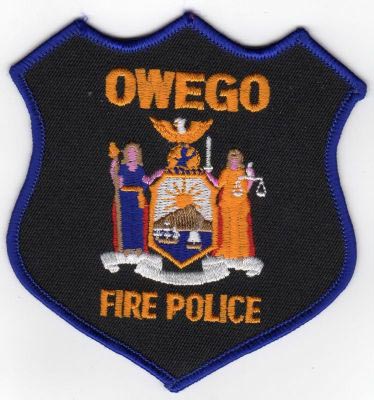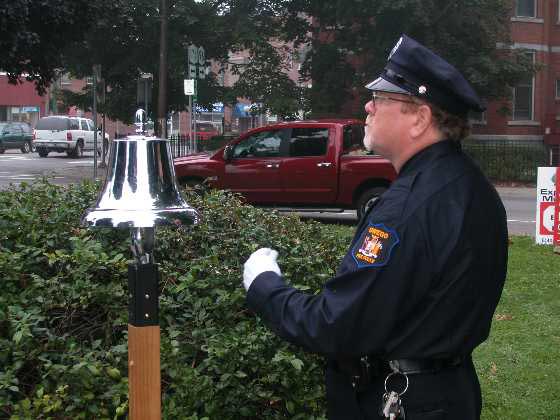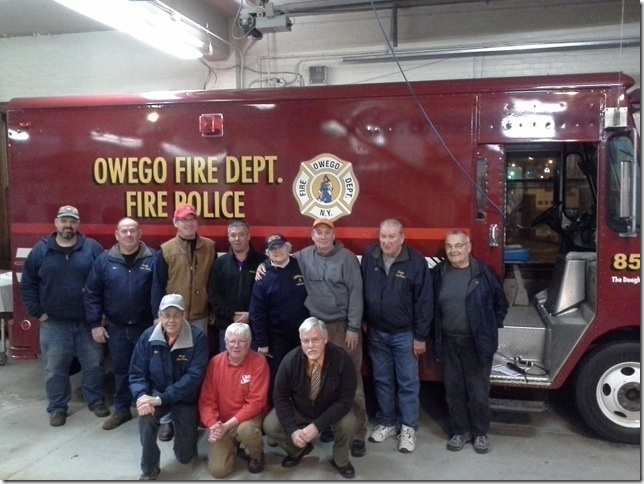The Owego Fire Department Fire Police are sworn Peace Officers in the Village of Owego and the State of New York pursuant to Section 209-c of the General Municipal Law (GML) and are registered through the Central State Registry of Peace Officers. We are charged with certain responsibilities, which consist of; the direction of traffic at all fires, drills, parades or emergency scenes, crowd control, maintaining safe conditions for emergency personnel at all fire and emergency scenes and other lawful duties that the Chief may order.
An often-overlooked facet of fire police operation is that it provides an interface between the fire department and the public. The public seldom have occasion to talk with firefighters while they are working at an emergency. Fire police at times have the opportunity to speak with bystanders and answer questions about the operation, their volunteer fire department, or simply give directions or suggest possible detours. During these times their professionalism, appearance, and demeanor, reflects directly on their department and the entire volunteer fire service.
All Fire Police are required to successfully complete the twenty-two (22) hour New York State Fire Police Training Course and FEMA Incident Command System courses ICS-100 and ICS-700. The Fire Police course must be completed within one year of appointment and all fire police are further encouraged to seek additional training to assist them in carrying out their duties.
Examples of duties that have been assigned to OFD Fire Police
- Traffic control at fires, car crashes, mass casualty incidents (MCI) emergencies, drills and other fire department operations.
- Protecting firefighters and emergency medical service (EMS) personnel.
- Protecting bystanders and crowd control at emergencies.
- Protecting each other’s safety while on post.
- Protecting fire department equipment.
- Routing responding emergency vehicles to their assigned locations.
- Rerouting non-emergency traffic away/around emergency operations.
- Close roads & reroute traffic after weather emergencies.
- Assist at fire department parades and inspections.
- Participate in Fire Prevention Week & other public service education programs.
- Attend fire police meetings, training classes and seminars.
- Under the mutual aid plan, assist neighboring county/state fire police response teams when requested.
- Assist at fire department funerals, wakes and memorial services.



